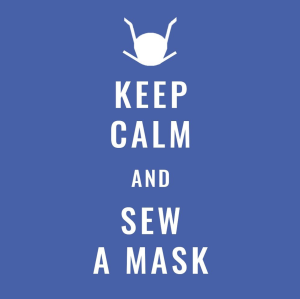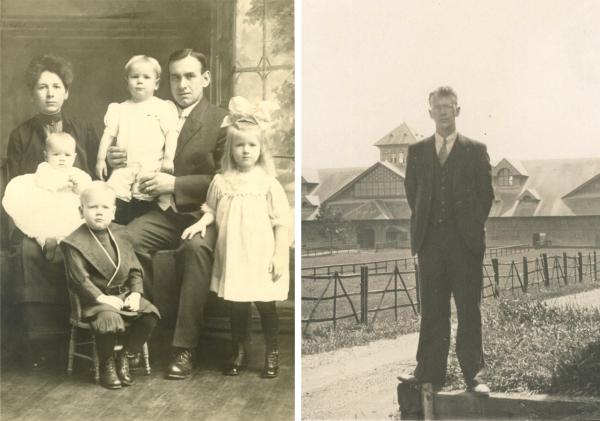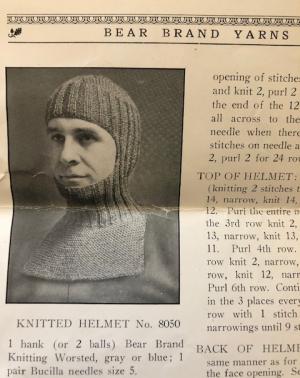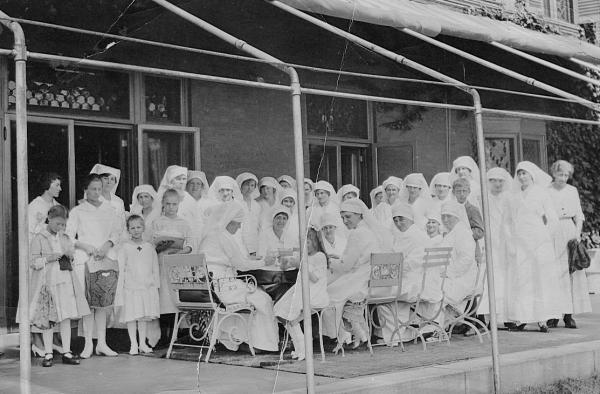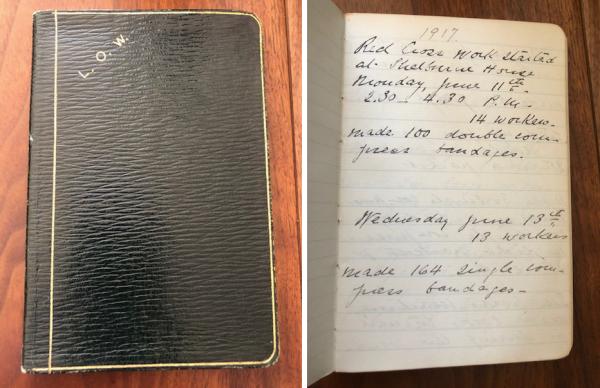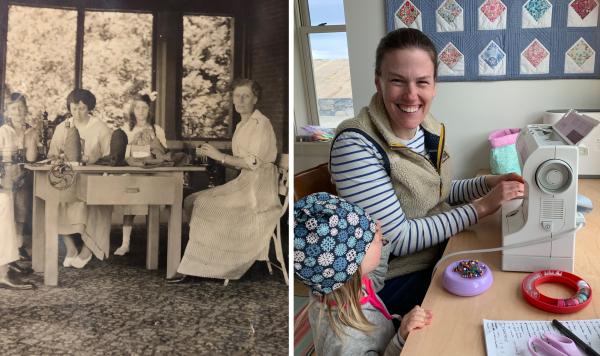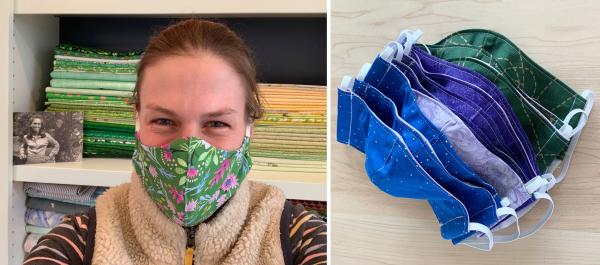“What have you thought of the five days shut-down? Nothing else is talked of here at present."
--Lila Webb (New York City) to Edward F. Gebhardt (Shelburne, VT) - 1918
As countries around the world are grappling with the rapid spread of the novel coronavirus (COVID-19), one is naturally inclined to look back at how plagues and pandemics have impacted society throughout history. Distinct parallels are being drawn to the influenza outbreak of 1918-1919, with books on the subject gaining renewed interest and articles emerging with more frequency.
Shelburne, Vermont was not immune to the spread of the flu pandemic; an illness exacerbated by soldiers returning from World War I.While modern modes of transportation have expedited the spread today, the sick and weary soldiers heading home from the war were convenient carriers of the flu to unwitting and unprepared cities and towns all over the world. Shelburne Farms’ archival records provide a glimpse into these inextricably linked events and their impact.
Past and present attempts to control the spread of each virus are so similar that media headlines could be interchangeable. Shelburne Farms long time Farm Manager, Edward F. Gebhardt, describes some restrictions on the local community in the fall of 1918 to Mr. Bradley of Boston, Massachusetts: “We are all well so far and only a few cases of Influenza in town. Schools are closed and all gatherings prohibited.” The same restrictions are in place today, and we are practicing “social distancing” to help mitigate the spreading of the virus.
Three months later, Mr. Gebhardt shared updates with Lila O. Webb, noting in a January 1919 letter: “We had seven new cases in Shelburne last week. It is too early to say how serious they may become. The condition of the little boy at the dairy still continues to fluctuate from day to day. His temperature yesterday remained under 100 for the whole day which is the first day it has not jumped up at night.”
The little boy at the dairy--Ainslee Hilton Vosburgh--was born on March 16, 1914 in Shelburne, Vermont and was raised in a house that once stood near the Breeding Barn. He was one of five children born to the head of the Shelburne Farms creamery, Howard, and his wife, Ella Vosburgh. Although Ainslee survived his illness, the intense fevers caused him complete hearing loss. Sadly, Ainslee had already lost both of his parents to influenza in December 1918.
Mr. Vosburgh and I corresponded in 2007, shortly before his death, and he shared his unfailing and heartfelt love of Shelburne Farms, the place of his birth and roots of his early childhood.
Before his fever, when Ainslee was just 3 years old, his on-the-farm neighbor, 12-year-old Dorothy Vaughan, was chronicling her year in a 1917 journal. Among the many daily activities she writes about, Dorothy proudly documents her dedicated volunteer work as a Red Cross worker throughout the summer and fall. The United States entered World War I in 1917 and there was a great need for supplies for troops. In response, Lila O. Webb turned Shelburne House (today the Inn at Shelburne Farms) into a Red Cross workroom that spring. Webb family members, friends, farm employees, and neighbors produced bandages and knit garments, including socks, sweaters, helmets (see image at right), hats, and mufflers. On October 1, Dorothy Vaughan writes in her journal, “My helmet directions from Mrs. Webb came today. They weren’t like those Mrs. Vosburgh gave me, but Mrs. Woodgate says Mrs. Vosburgh’s the best.”
Women gathered year round at Shelburne House through 1919 to support the war effort and local causes. Lila Webb maintained her own small journal at this time, noting in 1918, “Work in surgical dressings, assorted garments & knitted articles, for the American Red Cross, British American War Relief Homeless Children in France, Navy League of the U.S.” They also made garments on request and in haste such as pairs of pajamas “... 7 pairs made by workers from Shelburne Village for Winooski. Hurry call for epidemic patients.” Later, on October 16th, she notes “did 150 influenza masks for Shelburne Red Cross- material supplied by them.”
Today, state governments and some hospitals are issuing similar calls for help, as COVID-19 taxes our health care system. Shortages of ventilators, surgical masks and gown supplies have resulted in an outpouring of support--everywhere! From companies such as Brooks Brothers to our local neighbors, masks are getting sewn in great haste to fill a need which is all too reminiscent of the hand work undertaken by women and young girls in the Shelburne community, and around the world, over 100 years ago.
Amanda reported the following:
“Over the past two weeks the sewing community has been coming together to sew masks with the famous poster "keep calm and sew a mask" in mind. We've all heard about the shortages of PPE in our hospitals and although these masks aren't as effective as the N-95s, the state of Vermont now recommends that people wear masks out in public. I've been contacted by numerous friends to make masks for them, their parents, etc., and my sewing machine is whirring from dawn till dusk :) Thankfully, I have a very robust fabric stash as well as quite a bit of elastic left over from old projects! It's fun to be able to customize the masks based on the friend's taste (rainbows! blue! unicorns!) -- I hope they'll bring a little joy during this uncertain time. In addition, Lyric Theater Company is coordinating an effort sewing masks for UVM Medical Center with special heavier weight fabric, so we're sewing on all fronts! It brings to mind war efforts of yesteryear and I feel a connection to those that have gone before me -- we all want to do our part to help in whatever way we can right now. Keep calm and sew on!”
Want to join the effort?
- Download the sewing pattern that Amanda has been using.
- Learn more about Lyric Theatre’s community sewing project.
- There are mask-sewing initiatives across the country. Search for one near you!

